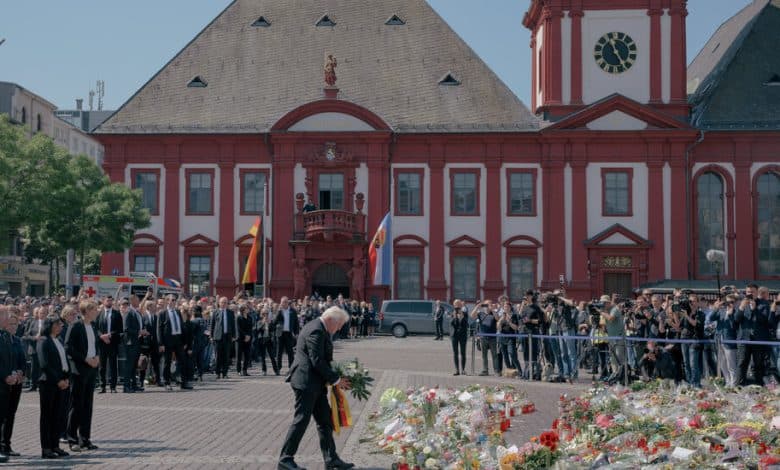Where Germany’s Immigration Debate Hits Home

The leafy market square, ringed by Middle Eastern restaurants in a quiet city where nearly half the residents have immigrant backgrounds, seems like the last place that would spur Germany’s latest explosive wave of nationalist backlash.
But it was in Mannheim where prosecutors say an Afghan man stabbed six people in May at an anti-Islamist rally, killing an officer who had intervened. No motive has yet been determined. But the death and the fact that the man accused had his asylum claim denied years ago set off calls for the expulsion of some refugees. Such sentiments were once viewed as messaging mostly reserved for the far right.
That this could occur in Mannheim, a diverse community of over 300,000 people known for its sensible plotting along a grid as a “city of squares,” has rattled Germany. It has been particularly painful for the longtime Muslim population of the city, where, according to some estimates, nearly one in five people are of Turkish descent.
Overtly, the political discussion concerns refugees, but in the lived experience of German Muslims, many said they felt like they were steps away from becoming a target. That worry has heightened since January, when an exposé revealed a secret meeting by members of the extreme right during which the deportation of even legal residents of immigrant descent was discussed.
Some expressed fears that what happened in Mannheim may have broken a dam.
Days after the death of the officer, Rouven Laur, 29, Mannheim became the reference point for a flood of anti-immigrant proposals — some once relegated to whispers only among the farthest right but that had now moved to the center of the German political debate.
